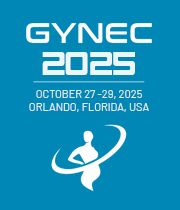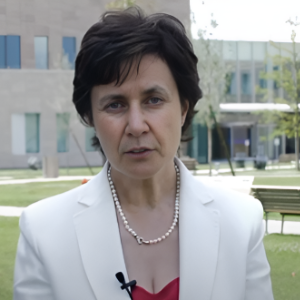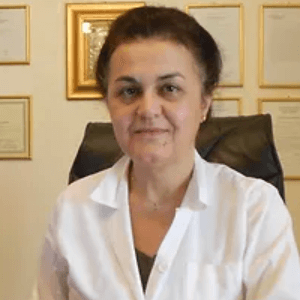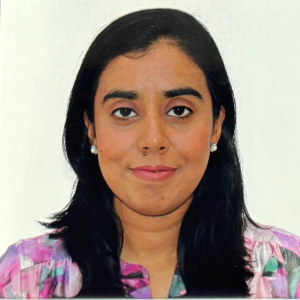Vijay Prabha, Panjab University, India
Infections of the urogenital tract are often convicted in 15% of the cases of infertility in females. The microorganisms present in vagina play an important role in determining several aspects of reproductive health. However, well designed studies on infections and infertility ar [....] » Read More





























![Impact of Matrix Metalloproteinase [MMP]-2 (2735C>T) and Tissue Inhibitor of Metalloproteinase [TIMP]-2 (2418G>C) gene polymorphisms with human papillomavirus-mediated cervical cancer: Emerging trends in gynecologic oncology Speaker at Gynecology Conferences - Saumya Pandey](https://gynecology.magnusconferences.com/uploads/speakers/saumya-pandey-6939.jpg)













Title : Understanding pelvic organ prolapse
Woojin Chong, NYU Langone Medical Center, United States
Pelvic Organ Prolapse (POP) is descent of one or more pelvic structures, from the normal anatomic position, usually to or beyond the hymenal remnants, owing to loss of support from the connective tissue, muscles, or both. It can lead to symptoms of pelvic pressure, vaginal bulge, [....] » Read More
Title : Eliminating suffering from breast cancer -The Lavender Way
Phillip Bretz, Visionary Breast Center, United States
Forty years ago we thought huge cancer institutions coupled with comprehensive cancer centers and mammography machines on every corner were the answer for breast cancer. It was not. The 43,000 plus women yearly who have gone through hell and then died are a testament to that. Des [....] » Read More
Title : Efficacy of full piers calculator in predicting adverse maternal outcomes in preeclampsia
Sangeeta Shah, Govenment Medical College, India
Preeclampsia and other hypertensive disorders of pregnancy (HDPs) remain the leading causes of maternal and perinatal morbidity and mortality. The World Health Organization estimates that at least one woman dies every seven minutes from the complications of HDPs. The Preeclampsia [....] » Read More
Title : Treating breast cancer with the breast intact and the patient fully awake, has a lasting positive psychological impact aka The Lavender Way - Lavender procedure
Phillip Bretz, Visionary Breast Center, United States
Background: Our previous publication in RAS, Research Article: The Lavender Way - Lavender Procedure, a Way to Defeat Breast Cancer Without Surgery, Chemotherapy, or Radiation. A Clarion Call for Radical Change, did not detail what we consider to be an extremely valuable contribu [....] » Read More
Title : Investigation of OAS1, OAS3, and other differentially expressed genes in cervical cancer
Samantha Hsu, University of Central Florida College of Medicine, United States
Introduction: Cervical cancer (CC) is the fourth most common cancer among women, with approximately 604,000 new cases diagnosed annually worldwide. It is caused predominantly by high-risk strains of human papillomavirus (HPV), which inactivate tumor suppressor gene function. Adva [....] » Read More
Title : Demographic characteristics of women with uterine leiomyomas: A comparative analysis of the all of us research program participants
Saarah K Sherifi, The University of Central Florida College of Medicine, United States
Background. Uterine leiomyomas are the most common benign tumors in women of reproductive age, affecting approximately one in four women. Despite their high prevalence, the demographic and geographic prevalence trends remain understudied. Building on a prior Florida-based analy [....] » Read More
Title : ICD-10 Z Codes and social determinants of health in emergency department encounters for salpingitis and oophoritis
Cassandra Farber, Pennsylvania State College of Medicine, United States
Objective: This study characterized the demographic and clinical profile of patients with documented social determinants of health (SDOH) ICD-10 Z codes (Z55–Z65) who presented to the emergency department (ED) with salpingitis and oophoritis, and explores patterns of health [....] » Read More
Title : Impact of documented social determinants of health (ICD-10 Z Codes) on emergency department outcomes in ectopic pregnancy
Cassandra Farber, Pennsylvania State College of Medicine, United States
Objective: This study characterizes the demographic and clinical profile of patients with documented social determinants of health (SDOH) ICD-10 Z codes (Z55–Z65) presenting to the emergency department (ED) with ectopic pregnancy, and explores healthcare utilization and man [....] » Read More
Title : Patterns of maternal and infant healthcare utilization following prenatal substance use
Jessica Liu, Central Michigan University College of Medicine, United States
Background: Prenatal substance exposure to opioids, tobacco, and marijuana has been linked to adverse health outcomes in children. However, the relationship with early childhood medical service utilization remains underexplored, particularly in distinguishing between specific sub [....] » Read More
Title : Comparing the efficacy of levonorgestrel intrauterine device and oral levonorgestrel for emergency contraception: A systematic review and meta analysis
Andie Blankenstein, Central Michigan University, United States
Background: Emergency contraception (EC) is critical for preventing unintended pregnancies following unprotected or inadequately protected sexual intercourse. While oral levonorgestrel (LNG) pills are the standard FDA-approved EC method, the levonorgestrel intrauterine devic [....] » Read More
Title : Breastfeeding influence on vaginal bleeding in late labor: A comparative study
Atiya Kareem Mohammed, University of Sulaimani, Iraq
Background: Losing blood in the labour's 3rd stage is the primary factor that impacts maternal health. Immediate breastfeeding could be considered a saving factor in the life of mothers. Since it could naturally spread the oxytocin to stimulate the uterine contraction, dislod [....] » Read More
Title : Investigating patients’ knowledge of clinical breast examinations
Sophia Fraga, University of Michigan Medical School, United States
Background: While clinical breast exams (CBEs) have long been a standard part of health maintenance visits, recent evidence questions their utility in resource-rich settings where mammography is readily available. Systematic reviews suggest that for every cancer detected by CBE, [....] » Read More
Title : Delivery modalities and challenges in cerebral palsy patients: A case study
Swati Kumari, BronxCare Hospital, United States
Cerebral palsy (CP) presents unique challenges during pregnancy and delivery due to associated motor impairments, comorbidities, and sensory deficits. As medical advancements increase the number of women with CP reaching childbearing age, tailored obstetric care becomes essential [....] » Read More
Title : Comparing in-person and phone translation services for spanish-speaking patients
Swati Kumari, BronxCare Hospital, United States
Effective communication is vital for high-quality patient care, especially for non-English-speaking populations. This study examines the impact of translation services on patient satisfaction and communication effectiveness, aiming to extend our impact on population and community [....] » Read More
Title : Bioinformatics role in understanding reproductive disease and assisted reproductive treatment
Sallwa Meshbeb Alshehre, Umm Al Qura University, Saudi Arabia
Endometriosis is a gynecological condition that significantly impairs fertility, not only through anatomical distortion but also by altering the biochemical environment of the follicular fluid (FF), which plays a crucial role in oocyte quality. Inflammatory factors present in the [....] » Read More